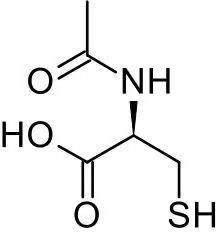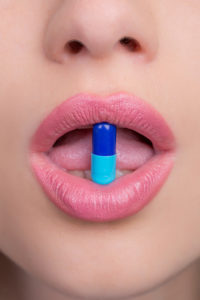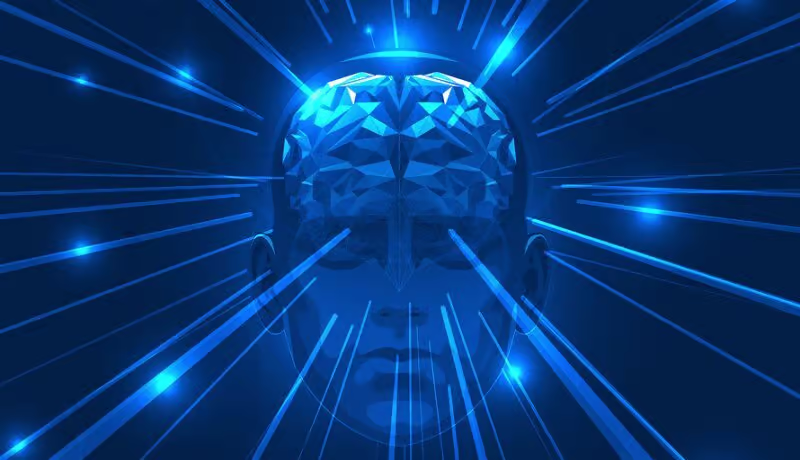Table of Contents
Key Takeaways
- N-Acetyl L-Cysteine (NAC) is a powerful antioxidant that restores glutathione levels in the body and brain, helping maintain oxidative balance in cells.
- NAC has neuroprotective properties, reducing inflammation, oxidative damage, and modulating glutamate levels and dopamine release, positively impacting cognition, memory, and mood.
- NAC shows potential in treating serious cognitive disorders like schizophrenia, bipolar disorder, severe depression, and anxiety by boosting glutathione and dopamine levels in the brain.
- NAC can reduce oxidative stress, eliminate free radicals, rejuvenate dopamine receptors, and enhance cognitive function when taken as a supplement.
- N-Acetyl L-Cysteine (NAC) dosage recommendation is 500 mg, 3-times per day
N-Acetyl L-Cysteine (NAC or N-acetylcysteine) is the N-acetyl derivative of the naturally occurring amino acid L-cysteine. And works primarily by helping restore the body’s natural antioxidant glutathione (γ-glutamylcysteinylglycine; GSH).
As the most abundant antioxidant in your body, GSH is responsible for maintaining oxidative balance in each of your cells.
I have been using 500 mg NAC 3-times per day and every day for the last decade and it is one of my favorite supplements.
Taking glutathione as a nootropic supplement does not adequately restore GSH levels in your brain because it can’t cross the blood-brain barrier. This vastly underrated nootropic, NAC easily penetrates the blood-brain barrier and raises glutathione levels in your brain.[i]
NAC has been used to treat acetaminophen poisoning for decades.[ii] Every year there are 56,000 ER visits from Tylenol overdose, resulting in at least 100 deaths. [iii] NAC provides the glutathione your liver needs to fight off the metabolite NAPQI in Tylenol that does severe liver damage.
Studies show that as a nootropic, NAC helps prevent glutamate toxicity, boosts dopamine, and reduces inflammation, oxidative and free radical damage.
Where to buy: one of the only vendors still selling NAC and I highly recommend them: Life Extension – NAC
N-Acetyl L-Cysteine helps:
- Neuroprotection. NAC as a precursor of glutathione, is a potent antioxidant, anti-inflammatory and free radical scavenger.[iv] Your brain is especially vulnerable to inflammation, free radical and oxidative damage. Affecting cognition, long-term potentiation, memory and mood.
- Neurotransmitters. NAC modulates glutamate levels and dopamine release in the brain. Excess glutamate in your brain is toxic to brain cells affecting neuron health, cognition, memory and mood. And NAC protects dopamine receptors. Influencing dopamine levels and function in your brain. Even protecting dopaminergic nerve terminals from chronic methamphetamine use.[v]
- Anxiety and depression. NAC reduces irritability, anxiety and depression. NAC increases your body’s antioxidant capacity, and balances excitatory and inhibitory neurotransmitters in your brain. Resulting in less anxiety and depression.
N-Acetyl L-Cysteine (NAC)
N-Acetyl L-Cysteine (NAC) is the N-acetyl form of the naturally occurring amino acid L-Cysteine.

L-Cysteine is naturally produced in your body using the amino acid methionine. You can also get L-Cysteine from eating ricotta and cottage cheese, yogurt, pork, chicken, turkey, duck, wheat germ, granola and oat flakes.
But acute stress, illness, or a poor diet can deplete L-Cysteine levels in your body and brain. The quickest and most efficient way to boost levels of L-Cysteine is to supplement with N-Acetyl L-Cysteine (NAC).
NAC regulates the amount of glutamate in your brain. Glutamate is a neurotransmitter that is responsible for sending signals between neurons in the brain. This plays an important role in learning and forming memories.
But too much glutamate can be toxic to brain cells. NAC regulates the amount of glutamate and keeps it at safe, healthy levels.
NAC influences the amount of dopamine available in your brain. It works to keep dopamine receptors healthy and able to transmit and receive dopamine. These neurotransmitters are crucial for cognitive energy and drive, motor control, feelings of pleasure, and focus.
NAC is a precursor to the powerful anti-oxidant glutathione (GSH). GSH is a potent anti-inflammatory, anti-oxidant and free radical scavenger.
Your brain is especially vulnerable to inflammation, free radical and oxidative damage. If left unchecked, inflammation, oxidation and free radicals can negatively affect cognition, long-term potentiation, memory and mood.
As a nootropic, NAC can boost glutathione and dopamine levels in your brain. NAC is also used by medical professionals to treat serious cognitive disorders like schizophrenia, bipolar disorder, severe depression and anxiety.
How does N-Acetyl L-Cysteine work in the Brain?
N-Acetyl L-Cysteine boosts brain health and function in several ways. But two in particular stand out.
- N-Acetyl L-Cysteine reduces oxidative stress. Oxidative stress is caused by free radical damage in brain immune cells. Leading to neurodegeneration and reducing brain health which can lead to Alzheimer’s, Parkinson’s and other age-related neuronal disorders. Proteins and DNA are injured, inflammation, tissue damage and cellular apoptosis (cell death) are the result.
And neurohackers are not immune to oxidative stress no matter what your age. Keep this in mind the next time you reach for a Diet Coke. Consumption of the artificial sweetener aspartame induces cortical inflammation and oxidative stress. And negatively affecting brain health.
Researchers did a study with 30 adult male Wistar rats randomly divided into 3 groups. The control group received distilled water. The second group was given aspartame. And the third group was given aspartame and NAC. Oral administration was done in the morning daily for 90 days.
The study found that NAC boosted Brain-Derived Neurotrophic Factor (BDNF) levels, blocked the COX-2 and PGE2 inflammatory enzymes, and reduced the expression of interleukin-6 (IL-6) and tumor necrosis factor-α (TNF-α) inflammatory cytokines in the rat cerebral cortex. They also found that NAC replenished glutathione levels.
The researchers concluded that NAC prevented neurotoxicity and improved neurological function, suppressed brain inflammation, and oxidative stress response.[vi]
- NAC relieves depression. Major depressive disorder is one of the most common psychiatric disorders. It’s a burden on the individual, family and the community. And the pharmaceutical companies are making literally billions on selling various anti-depressants. Not treating the cause, producing a host of side effects, and in most cases just ‘dumbing down’ the symptoms.
But the pipeline for new anti-depressant drug discovery is at a near stand-still for treating problems like schizophrenia, bipolar disorder, depression and common forms of autism.
The good news is that neuroscience continues to work on the problem. And have shown that many of these disorders share immune health issues such as inflammation and oxidative stress as part of their disease physiology.
Neuroscientists also discovered that associated pathways causing these diseases include a reduction in proteins that stimulate neuron growth (neurotrophins), increased apoptosis (cell death), and reduced energy generation in mitochondria.
It turns out that N-Acetyl Cysteine seems to have multiple effects on all these pathways. NAC reduces the core symptoms of schizophrenia, reduces depression, and reduces cravings for a number of addictions including cocaine, cannabis and tobacco.[vii]
How things go bad
As we get older or suffer from chronic illness, our brain and body chemistry and energy metabolism changes.
↑ Oxidative stress in brain cells increase
↓ Free radicals damage neurons
↓ Dopamine receptors stop working
↑ Glutamate toxicity causes cell damage and apoptosis
↓ Brain-Derived Neurotrophic Factor (BDNF) declines
↓ Mitochondria energy declines
All of these changes are often attributed to chronic illness, lifestyle choices, and aging.
Unchecked, they could lead to neurodegenerative diseases like Parkinson’s, Alzheimer’s, major depression, schizophrenia, OCD, addictions, autism, and a drop in quality of life.
N-Acetyl L-Cysteine health benefits
N-Acetyl L-Cysteine (NAC) is a slightly modified version of the sulfur-containing amino acid L-Cysteine. When taken as a supplement, NAC can reduce oxidative stress by replenishing intracellular levels of the natural antioxidant glutathione (GSH). Restoring your cells’ ability to fight damage from reactive oxygen species (ROS).
Conventional medicine has used NAC for decades as an inhaled mucous thinner to treat symptoms of cystic fibrosis. Patients receive intravenous NAC (IV) or orally as a treatment for acute acetaminophen overdose poisoning. NAC quickly restores glutathione levels, averting permanent disability or death.
The nootropics community has recently discovered NAC as a way to suppress inflammation in the brain. NAC prevents oxidative stress on brain cells, eliminates free radicals, restores Brain-Derived Neurotrophic Factor (BDNF), rejuvenates dopamine receptors, and improves overall cognitive function.
NAC can help boost cognition, Long-Term Potentiation for long-term memory formation, short-term and working memory, improve your mood and quell anxiety.
How does N-Acetyl L-Cysteine feel?
Neurohackers report that supplementing with NAC could be the best nootropic they’ve ever used for their brain and overall health. Comments include:
- Thinking is clearer (less brain fog)

- Memory improves
- Concentration and attention improves
- Less anxiety
- Less depression
- Less irritable
- Mood improves (like a ‘clean high’)
- Symptoms caused by ADHD meds disappear
- Obsessive Compulsive behavior decreases
- Sleep quality improves
- Energy levels increase
- Weight maintenance is easier
- Less flu and colds
- Skin looks better
- Feel younger
- Hangovers are less severe
N-Acetyl L-Cysteine Clinical Research
N-Acetyl L-Cysteine increases dopamine in Parkinson’s Disease
Treatments for Parkinson’s Disease are limited to replacing dopamine in the brain. As well as some medications designed to slow down the disease.
In 2016, researchers at Thomas Jefferson University showed that oxidative stress in the brain could play a critical role in the progression of Parkinson’s. And this stress lowers levels of glutathione, a compound produced in the brain to counteract oxidative stress.
Studies show that N-Acetyl L-Cysteine (NAC) helps reduce oxidative damage to neurons by helping restore the levels of the antioxidant glutathione.
In this study, Parkinson’s patients were placed into two groups. The first group received 50 mg/kg of an intravenous n acetyl cysteine (IV) once per week. And 600 mg of NAC as a supplement twice a day on non-IV days.
The second (control) group received only their standard Parkinson’s treatment. Patients were evaluated at the beginning of the study and again 3 months later.
The evaluation consisted of the Unified Parkinson’s Disease Rating Scale (UPDRS), and a SPECT brain scan which measures the amount of dopamine transporter in the brain.
Compared to controls, the patients receiving NAC had significant improvements in their scores. One of the study authors said, “We have not previously seen an intervention for Parkinson’s disease have this kind of effect on the brain”. This study demonstrated for the first time the direct effect of NAC on the brain’s dopamine system. NAC has the unique ability to enable dopamine neurons to recover their function.[viii]
N Acetyl Cysteine (NAC) alleviates symptoms related to Chronic Obstructive Lung Disease
People suffering from chronic obstructive pulmonary disease (COPD) may experience long-term oxidative damage and inflammation of lung tissue. And lack of oxygen to the brain can have a severe impact on memory.
In addition, any chronic lung disease, such as bronchitis, can cause airways to constrict. This inflammation may lead to shortness of breath or coughing. Research suggests that taking the potent antioxidant N-Acetyl Cysteine (NAC), dietary supplements can help improve symptoms related to COPD, chronic bronchitis, and its complications, and improve lung function.
N-Acetyl L-Cysteine repairs Traumatic Brain Injury
Traumatic brain injury (TBI) is a major public health issue affecting 69 million people worldwide each year.[ix] TBI can be caused by sports injuries, work accidents, car and motorcycle accidents, falls, and your wife hitting you over the head with a frying pan.
Many survivors end up with long-term or even permanent neurocognitive dysfunction. Affecting cognition, motor function (movement) and personality. These disabilities are estimated to cost $26 billion in lifetime medical costs and $631 billion in quality of life lost.[x]
A major cause of TBI comes from blast exposure on the battlefield. Symptoms are similar to other causes of TBI; dizziness, hearing loss, headache, memory loss, sleep issues, and neurocognitive dysfunction.
In a brain subjected to TBI there is glutamate toxicity, free-radical injury to brain cells, electrolyte imbalances, mitochondrial dysfunction, inflammation, apoptosis (cell death) and stroke.[xi][xii]
This double blind, placebo-controlled study was conducted with 81 active duty service members at a forward deployed field hospital in Iraq. All service members in this study were exposed to significant ordinance blast and met the criteria for TBI.
Service members were randomly assigned to receive either a placebo or N-Acetyl L-Cysteine (NAC) for 7 days. The resolution after 7 days of all the TBI symptoms listed above was the main outcome measure of this study.
The researchers concluded that NAC was a safe pharmaceutical countermeasure of blast-induced TBI. And that further work on long term outcomes and the potential use of NAC in civilian TBI is warranted.[xiii]
N-Acetyl L-Cysteine helps alleviate depression
Both depression and bipolar disorder are complicated by glutathione depletion. The researchers in this double-blind, multicenter, placebo-controlled study worked with 75 subjects with bipolar disorder.
Subjects received 1 gram of NAC twice daily for 24 weeks. NAC treatment caused a significant improvement with depression with those using NAC.
The researchers concluded, “NAC appears a safe and effective augmentation strategy for depressive symptoms”. In this case with people suffering from bipolar disorder.[xiv]
N-Acetyl L-Cysteine Recommended Dosage
 N-Acetyl L-Cysteine (NAC) suggested dosage for cognitive benefit is 500 mg 3-times per day.
N-Acetyl L-Cysteine (NAC) suggested dosage for cognitive benefit is 500 mg 3-times per day.
Clinical studies have found that doses up to 2,000 mg per day are safe and effective.
And one German study showed the safety of 2,800 mg per day for 3 months in patients with cystic fibrosis.[xv]
NAC has also proven effective against seasonal influenza and flu-like illnesses. One large study of older adults in Italy took 600 mg of NAC twice daily for 6 months. Only 25% of those adults who used NAC experienced flu-like episodes compared to 79% in the placebo group.[xvi]
N-Acetyl L-Cysteine Side Effects
N-Acetyl L-Cysteine (NAC) is the N-acetyl form of one of the naturally occurring amino acids of the body, L-Cysteine.
NAC is a slightly modified version of the sulfur-containing amino acid L-Cysteine. So NAC in powder form can have an unpleasant smell.
Very rarely can NAC cause nausea, vomiting, diarrhea or constipation. Even more rare are rashes, fever, headache, drowsiness, low blood pressure and liver problems.
Side effects can be a result of very high doses of NAC. And if you have a genetic condition called Cystinuria do not use NAC. This rare condition causes stones to form in the kidneys, ureter and bladder from cysteine. NAC is the N-Acetyl form of Cysteine.
One study has also found that long-term use of high-dose NAC can deplete your body’s stores of zinc. So if you are using NAC everyday you should also supplement with zinc and low dose copper.
Where to buy N-Acetyl L-Cysteine
N-Acetyl L-Cysteine (NAC) is available in powder, tablet and capsule form. NAC capsules and tablets were usually 500 mg.
Where to buy: I highly recommend: Life Extension – NAC
NAC was in short supply because on July 23, 2020, the FDA sent a warning letter to Purple Biosciences LLC about its NAC product. And asserted that NAC was illegally sold as a dietary supplement because it was approved as a drug September 14, 1963. Several other letters were sent to supplement manufacturers. Resulting in NAC being difficult to find on Amazon or many of the other sites that used to sell NAC.
Several lawsuits were filed against the FDA. And NAC has since become easier to find in the supplements sections of online stores.
Nootropics Expert Recommendation
N-Acetyl L-Cysteine (NAC) 500 mg, 3-times per day
 I highly recommend using N-Acetyl L-Cysteine (NAC) as a nootropic supplement.
I highly recommend using N-Acetyl L-Cysteine (NAC) as a nootropic supplement.
Your body does synthesize some L-Cysteine from methionine. And you can get L-Cysteine from foods such as dairy, poultry, pork, and some grains and nuts.
But most of us don’t get enough N-Acetyl L-Cysteine from our diet. So supplementation will help. And N-Acetyl L-Cysteine is a highly bioavailable form of L-Cysteine. So you should feel its effects faster.
NAC is helpful for most neurohackers to improve mood, memory, cognition, and concentration. And NAC helps alleviate brain fog, anxiety, and irritability.
NAC is especially helpful to those dealing with Obsessive Compulsive Disorder. And stacked with ADHD meds, NAC helps alleviate some of the negative side effects associated with stimulants.
If you can still find it, you can safely use up to 1,800 mg of NAC per day. The usual dose for cognitive improvement is 500 mg dosed 3 times throughout your day.
I recommend N-Acetyl L-Cysteine (NAC) from : Life Extension – NAC








Join The Discussion - 560 comments
Calle
April 24, 2019
Hi David,
I bought some NAC and a supplement that contains both zinc and copper among other minerals. I bought the latter because the website where I bought it said it contained 15mg zinc (oxide) and 1mg copper, but it’s the nutritional value of three tablets, not one. I’d like to take one, one and a half, or at most two tablets a day. What dose do you suggest? I think I’ll take 600mg of NAC twice a day, I won’t be taking it thrice very often
David Tomen
April 24, 2019
Calle, the supplement you mention contains 400 mg of magnesium in 3 tablets which is the recommended daily dosage of magnesium. It’s entirely up to you of course on how many tablet you are willing to use per day. And 600 mg of NAC 2-times per day is ideal as well.
Dr Kirit Dangi
March 24, 2019
I want to know drug use in schizophrenia patient.
David Tomen
March 24, 2019
Are you asking if NAC is safe to use with a schizophrenia patient?
Dan Taryanik
February 2, 2019
Hi David,
What do you think about the new sustained release version of NAC? It’s a product by Jarrow Formulas?
600mg 1/3 quick release, 2/3 Sustained Release?
Thanks!
David Tomen
February 3, 2019
Dan, “Other Ingredients” is the problem with Jarrow’s Sustained release NAC. I personally prefer a supplement that contains only the ingredient I want and nothing else.
Aleksandar
December 29, 2018
Hello,
In my country NAC is available in a form of effervescent tablets (600 mg), indicated for mucolytic therapy. Same nootropic benefits as other forms?
Thanks
David Tomen
December 31, 2018
Aleksandar, it should be the same supplement. Double check the label to make sure.
Deni
December 28, 2018
Hi David,
I am currently studying nutrition, and this has been a great place to use for research purposes, so thanks.
I have 2 questions, firstly does NAC help with someone trying to stop taking drugs, like cannabis and alcohol? Or should they consider some kind of detox approach?
Second, would you recommend someone like myself to supplement with NAC even though I don’t currently have any particular health issues, except my GGT levels are slightly high (tested using Kinesiology in class).
David Tomen
December 28, 2018
Deni, I would suggest using NAC while detoxing because it helps boost glutathione and dopamine. I think NAC is a great supplement for most people because it helps increase glutathione. I personally find that when using NAC and while others around me are getting sick with the flu or a cold I manage to stay well.
And BTW, Lithium Orotate, L-Glutamine, SAM-e, Picamilon, L-Carnosine, and Aniracetam have all been used one way or another in the treatment of alcoholism or the damage caused by alcohol.
Check out the reviews of each of these nootropics because at least one or two as I recall helps in relieving cravings for alcohol and some other drugs. Not sure about cannabis however.
Ellie
December 20, 2018
Hi David,
I have only recently started taking NAC, but am alarmed to read in several places that you should not take it if you have mercury fillings because this could result in mercury ending up in your brain. As I have quite a lot of mercury fillings, in your opinion, should I stop taking the NAC?
Thank you
David Tomen
December 21, 2018
Ellie, this is news to me. Please point me to an authority site like PubMed or other peer-reviewed site that provides evidence of this. And I’ll gladly update my Side Effects section in this review.
Elaine
December 26, 2018
Hi David,
Thanks for your response. Apologies, but I may have overreacted. Having looked into this further none of the mentions I’ve seen are from authoritative sites like PubMed, so what I have seen may have been based on supposition rather than fact.
Gabriella
October 27, 2018
Hi David,
The specialist treating my Bipolar has highly recommended NAC since there are a mass of studies on it specifically for mood disorders. We’re testing NAC as stand alone with the lower doses of psychotropics I’m using. Specifically to enhance mood, lift brain fog and curb anxiety. I feel I have noticed these positive effects almost immediately. My dose is 600 mg 3 times per day.
But I’ve heard elsewhere that folks are saying NAC is either not safe to use in those doses or that it’s better to use Glutathione. I trust your opinion so was hoping to hear your thoughts on these assumptions I’ve heard elsewhere.
Thanks in advance.
David Tomen
October 27, 2018
Gabriella, my research is based on clinical studies and my personal experience. As you noted in your comment there have been a “mass of studies”. NAC as a precursor to glutathione is more effective that dosing with glutathione. So please be critical of everything you read on the Internet and in books. And base your decisions on real evidence. Not what others are saying.
Gabriella
October 8, 2018
Hi David,
Just a quick question on NAC…
Is it fat or water soluble?
Thanks!
David Tomen
October 8, 2018
NAC is water soluble.